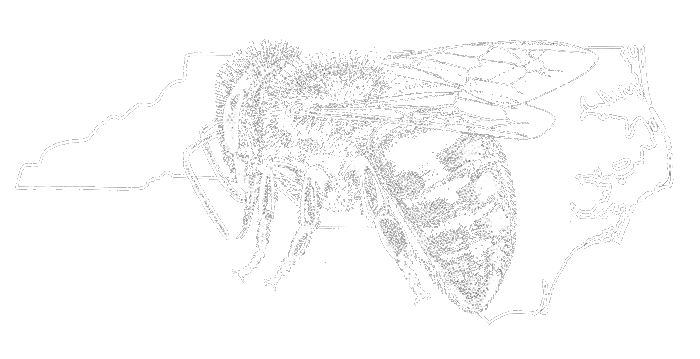The following letter was sent out from the NCSU in regards to Hurricane Florence of 2018. The information is still sound so it is being reposted.
Hi everyone,
With track of hurricane Florence poised to make a significant impact on North Carolina, there are some important considerations for beekeepers who may be affected by the heavy rain and winds. Please further disseminate to your local network of beekeepers and share this link:
entomology.ces.ncsu.edu/2017/09/protective-measures-of-beehives-during-hurricanes-2/First, make sure hive equipment is secured to resist strong winds. A simple brick on the top lid is likely to be insufficient to keep the lid from flying off in winds above 50 mph. A lidless hive can cause problems for the bees by introducing moisture and letting heat escape. Strapping the lid down with ratchet straps or securing with duct tape might be in order, particularly for outlying yards. The same is true for hive boxes, particularly if they are relatively new (i.e., the bees have not yet propolized them together sufficiently). Also consider removing unnecessary boxes (e.g., top-hive feeders) to minimize the wind profile.
Second, be sure to have the hives on sturdy stands or level ground. Entire beehives can be blown over by strong winds, particularly when they are fairly tall with many honey supers or are otherwise top heavy. If the hives are on tall or insecure stands, you can move them onto (dry) level ground temporarily to lessen the chances that they topple. Importantly, if you’re using solid bottom boards, be sure to have your hives tilting forward so that rain water does not pool and collect on the floor of the hive.
Third, beware of falling trees and tree limbs. These can be particularly problematic for beehives since they can completely crush all equipment and kill the entire colony. It is also hard to prevent with some sort of barrier or cover because of the sheer weight of many trees, so if you apiary is in a wooded location you may need to move the hives temporarily.
Fourth, make sure the hives are not in low-lying areas or those prone to flooding. River banks can be useful apiary locations because of their proximity to fresh water, but in flooding conditions entire apiaries can be tragically swept away. Be sure to move any beehives in flood plains until the waters have subsided. Beehives on the ground but in recessed areas can cause water to flood the entrances and may even suffocate the bees if not given an upper entrance.
Finally, following heavy rains like hurricanes, various local and state agencies have traditionally sprayed regions with stagnant water to control mosquito outbreaks. While important for public health, such insecticides can be extremely problematic for honey bees. If you are registered through the NCDA&CS, you will be contacted directly if your beehives are in an area schedule to be sprayed. If you are not registered, however, the state has no means to notify you and your bees may be at risk to insecticide exposure. Please consult the Agricultural Chemical manual for information and advice about how to mitigate exposure to pesticides.
Hope your bees stay safe and dry! Sincerely, David
******************************
David R. Tarpy
Professor and Extension Apiculturist
Department of Entomology & Plant Pathology
Campus Box 7613
North Carolina State University
Raleigh, NC 27695-7613

